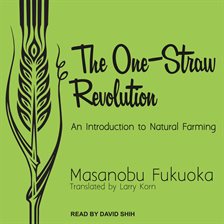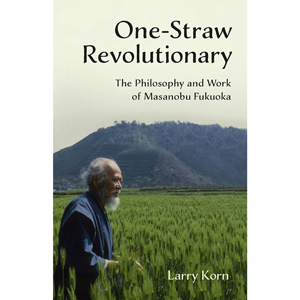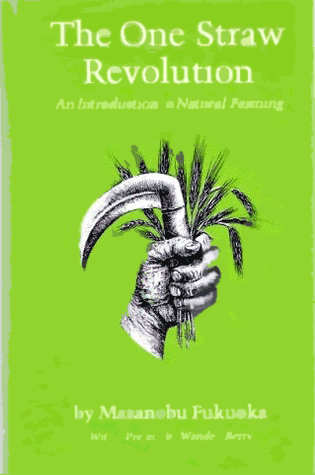

Whether you’re a guerrilla gardener or a kitchen gardener, dedicated to slow food or simply looking to live a healthier life, you will find something here – you may even be moved to start a revolution of your own. By the late 70s, when The One Straw Revolution was translated into English, Fukuoka had become a guru and disciple in seemingly radical - but eminently sensible - ways of approaching food, gardening, farming, and eating. Over the next three decades, he perfected his so-called “do-nothing” technique: commonsense, sustainable practices that all but eliminate the use of pesticides, fertilizer, tillage, and, perhaps, most significantly, wasteful effort. Trained as a scientist, Fukuoka rejected both modern agribusiness and centuries of agricultural practice, deciding instead that the best forms of cultivation mirror nature’s own laws. It is an inspiring, necessary book about agriculture because it is not just about agriculture.”

As Wendell Berry writes in his preface, the book “is valuable to us because it is at once practical and philosophical.

At the same time, it is a spiritual memoir of a man whose innovative system of cultivating the earth reflects a deep faith in the wholeness and balance of the natural world. ***Video Images from "The Close to Nature Garden with Masanobu Fukuoka", courtesy of Rodale Press and Bullfrog Films, Inc.Call it “Zen and the Art of Farming” or a “Little Green Book”, Masanobu Fukuoka’s manifesto about farming, eating, and the limits of human knowledge presents a radical challenge to the global systems we rely on for our food. **Narration and photos provided by Larry Korn, editor and translator of "The One Straw Revolution" ( ). *Produced and edited by Joy and Daniel Davis of Beyond 50 Productions. Even though his methods require less labor, it can result in higher yields for your farm or garden. You'll learn about his philosophy and the Four Principles of Natural Farming: no cultivation no chemical fertilizer or prepare compost no weeding by tillage and herbicides and no dependence on chemicals.

Translated in many languages, Masanobu Fukuoka wrote "The One Straw Revolution" (New York Book Reviews), a classic memoir and guide. Korn received a hands-on education in the art of non-cultivation and do-nothing, natural farming. In 1973, he was under the tutelage of his Sensei (teacher), Masanobu Fukuoka, who lived in Shikoku Island, Japan. Watch Beyond 50's book trailer on "The One Straw Revolution" that is narrated by the book's editor Larry Korn.


 0 kommentar(er)
0 kommentar(er)
